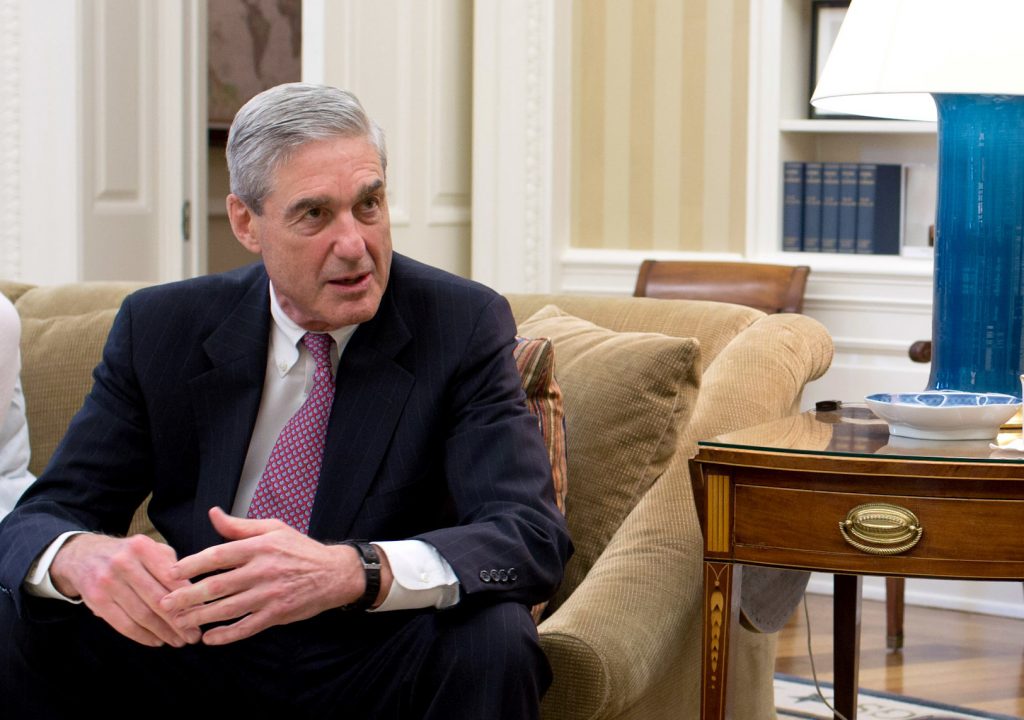
In a previous post, American Legal News examined one of the most troubling stories in the Mueller Report: the President’s attempts to fire Special Counsel Robert Mueller and, having failed in that, to impede the Special Counsel’s investigation into Russia’s interference in the 2016 election. These are two cases where the evidence, as laid out in the Mueller Report, strongly supports the proposition that the President committed obstruction of justice.
One of the most important characters in that story was White House Counsel Don McGahn, who the President instructed to fire Mueller. McGahn refused and told other White House officials he would resign if the President forced the issue. Trump did not, and McGahn kept his job, where he spearheaded the administration’s judicial appointments.
McGahn comes up again in Section I of the Mueller Report’s second volume. Section I chronicles the President’s attempts to get McGahn to deny reports he had been instructed to fire Robert Mueller.
It is another case where the Mueller Report’s obstruction of justice analysis is rather damning. The report provides reason to believe that the President’s actions in this case were obstructive. It’s one more situation where Donald Trump might well have been charged with obstruction of justice if he had been anyone other than the President of the United States.
A News Story Prompts A Furious Reaction
In January of 2018, The New York Times reported that Trump had ordered McGahn to fire Mueller the previous year. According to the story (and the Mueller Report would later confirm most of the details), McGahn had refused and threatened to resign. The President, who is notoriously reluctant to actually fire people, backed down at that point. (The next day The Washington Post clarified that McGahn had not directly told the President he would resign, instead making the threat to other White House officials.)
The White House clearly viewed the Times story as a serious threat. The President initially responded, as usual, by denying the story and calling it “fake news.” His behind-the-scenes efforts, however, were more serious.
Shortly after the story hit the wires, the President’s personal lawyer called McGahn’s and asked McGahn to put out a statement denying the story. After speaking with his client, McGahn’s attorney told Trump’s that McGahn would not issue such a statement, since the story was substantively accurate.
A week later, the President told his staff secretary, Rob Porter, that he suspected McGahn had leaked the story to the Times. He instructed Porter to tell McGahn to “create a record” that would make clear Trump had never ordered McGahn to fire Mueller. The President wanted McGahn to “write a letter for our records.” He also implied to Porter that he might fire McGahn if the White House Counsel didn’t comply with his request.
Porter conveyed the directive, but McGahn again refused to comply. McGahn was also unmoved by the potential threat to his job, saying that the “optics” of such a firing would be poor for the White House.
Finally, the President arranged to meet with McGahn in the Oval Office on February 6, 2018. During the meeting, Trump told McGahn he had never said anything about firing Mueller and said “you need to correct this.” McGahn pushed back, insisting that the President had clearly told him to call Assistant Attorney General Rod Rosenstein and order Mueller fired.
It was at this meeting that the President made his infamous comments criticizing McGahn for taking notes during meetings. When McGahn explained that real lawyers take notes, the President pointed out that Roy Cohn, a “great lawyer,” had never taken notes.
The Report’s Analysis
As made clear in the Mueller Report’s analysis of the 2016 Trump Tower meeting, merely lying to the press doesn’t qualify as obstruction of justice. However, the Report’s obstruction analysis with regards to the President’s actions toward McGahn is much less friendly to the President.
When it comes to the first element of an obstruction of justice charge, the presence of an obstructive act, the Mueller Report considers the possibility that Trump sincerely had a different recollection of his instructions to McGahn. But the report says “other evidence cuts against that understanding of the President’s conduct.” The report’s authors argue that the President’s actions would qualify as an obstructive act if they “had the natural tendency to constrain McGahn from testifying truthfully or to undermine his credibility as a witness….”
The report also argues there is substantial evidence of a nexus between the President’s acts and an official proceeding, which is the second component of an obstruction of justice determination. The President was well aware the Special Counsel had impaneled a grand jury and the report says the President “likely contemplated the ongoing investigation and any proceedings arising from it…” when taking the steps documented here.
Finally, in weighing the existence or non-existence of “corrupt intent” in the President’s actions, the report says, “Substantial evidence indicates that in repeatedly urging McGahn to dispute that he was ordered to have the Special Counsel terminated, the President acted for the purpose of influencing McGahn’s account in order to deflect or prevent further scrutiny of the President’s conduct towards the investigation.”
Based on the full analysis in Section I, it’s clear the authors believe there is substantial evidence the President obstructed justice with his attempts to coerce the Special Counsel into disputing published reports of Trump’s instructions to fire Robert Mueller.



Leave a Comment